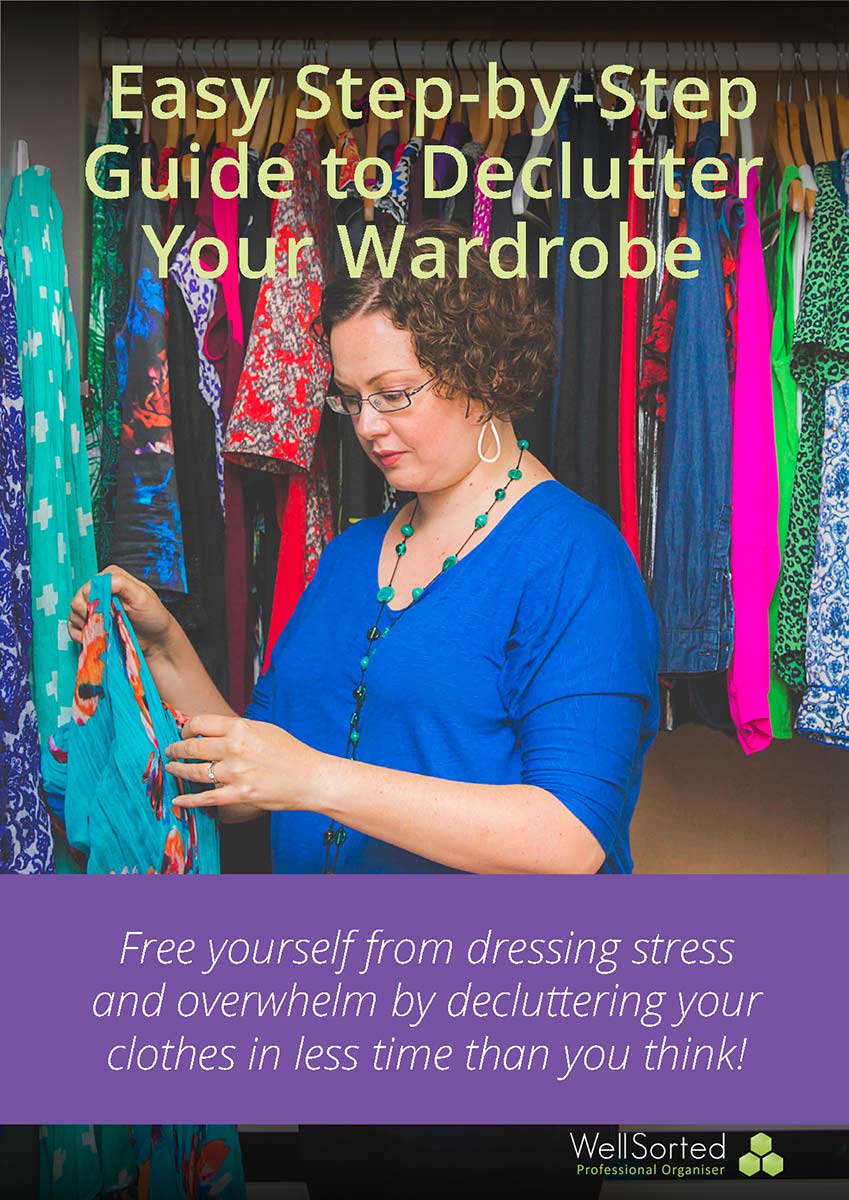Let’s talk about getting others on-board to declutter. Have you been decluttering your home, and are now at a standstill because the only things left are things that belong to someone else? Maybe that someone else isn’t really on-board the whole organising train…. They don’t seem to have the same vision as you do for the home. They’re happy with things the way they are. Well here’s a few tips on how you might be able to get them engaged and on that train with you. For the purposes of this article, I’m going to say the passenger for your declutter train is your partner.
Tips to Get Others On-Board to Declutter
Lead By Example
First off, always lead by example when you are trying to get others on-board to declutter. Declutter and organise your own things and the items in your home that are communal. When an area is more organised, have a chat with your partner about the space. How do they feel in there, now that it’s organised? Can they find things more easily? Are you calmer? What benefits have they observed since the change? (I’m being very direct with these questions to make it clear to you what sort of answers you’re looking to gather. You may soften them or make them more open so that you get answers).
Do the Heavy Lifting
Depending on your partner, there might be areas in the home or things of theirs they are more than happy for you to deal with on their behalf. If it’s your priority to have an uncluttered home, you’ll need to accept that you’ll be doing the heavy lifting. Work first through all of their stuff that they are happy for you to deal with. Then, if you’re ok with it, you might just group together the rest of their stuff for them to organise. If they ever catch the declutter train, at least they have an easy job of it, as it’s all together. You’ll want to make sure they’re ok with you touching their stuff and doing it for them.
Sometimes, the reason why your partner doesn’t want to get on the train is that they’re overwhelmed by the idea of it. If you’ve grouped their stuff for them, they may feel much more willing to spend five minutes sorting through it. They might do the football hat collection one weekend and their old work folders the next.
You know your partner best. Take the action which you think will have the most success.
Have a Conversation About Their Vision
Once you’ve set the example of how to declutter, and have worked through your own items (and that communal stuff you know they don’t care about), it is great to then sit down and have a conversation with them about their vision for that room or your home. This can be challenging for people because you can get caught up pushing your ideas, expectations and agenda onto them. That’s why Professional Organisers have a job! We can stand back and objectively help you meet your goals. To successfully help someone find their vision for a room, you’ll need to take a step back and consider the conversation as an investigative step. You’re trying to uncover their vision. What do they want the space to be like?
This is a difficult thing to do with loved ones because you’re invested in that space and you have ideas of how you want it to be. If you can remove the emotional aspect, and pretend for a bit that you’re talking to a friend about their house (instead of yours), you might be successful. When they’ve boarded the train, and have shared their vision with you, then get them to think about when they will work towards achieving this goal. If they want to disembark, then you can switch tact and see if they are okay with you organising and decluttering that room on their behalf with their vision in mind.
Share Your Vision and Needs
If they’re happy with things being exactly the way they are and they don’t want you touching their things, then it may be time to change the conversation around and share your vision and needs. If you’ve got a decent relationship then your happiness should be important to them. So, sharing your vision for the room, and what benefits it gives you (and perhaps them too) can be all they need to hear. Take some time to consider how you’ll word this. Be careful not to let it come out as a criticism to your partner. Consider these two explanations…
“This place is a mess. I just want to clean it up. I hate all your junk everywhere and how you don’t think about how it affects me. It looks disgusting. I’m so embarrassed!”
Or…
“It’s really important for me to get this room sorted out because I feel stressed when I’m in here. I’d love to be able to have room on the desk to sit and journal, or spread my notes out, and a place to do some craft. So I’d need to clear out all of those boxes over there to make space for a craft desk. Painting is really relaxing and I haven’t been able to do that for three years now. I really miss it. I think I’d feel calmer (and be nicer) if I just had somewhere to sit down and paint again.”
You can see the difference. You can then ask about how you could come to a compromise. Would they engage in a conversation to come up with a way forward? A solution?
What if They Can’t be Bothered?
They may then make it clear that they just couldn’t be bothered putting in the effort but are happy for you to go ahead and do it with some parameters. Like, “do whatever you want, just don’t throw out my football caps.” You could talk through the different things of theirs that you know are in the room and ask them specific questions about what can stay and what can go.
What if They are Overwhelmed?
Perhaps during the conversation, they totally agree with you, but they don’t want to admit it. They realise if they admit they hate it too they’ll have to do something about it. They want the change but they’re too overwhelmed by it and don’t know how to approach it.
If that’s the case, then they may be happy for you to sort it on their behalf into different categories. This might be enough to get them on-board to declutter and they might be happy to spend half an hour on the weekend decluttering one category at a time.
Still not on the declutter train?
Still not on the train? As a last resort, if you can cope with it, box their stuff up for them and store it in the garage. You can then talk through time frames that they need to be dealt with and the consequences if it’s not done. If it doesn’t bother you, that they’re stored away, then that’s your compromise. I’ve got a blog post coming about how to deal with the stuff stored and needing to get a tougher approach!
What’s your partner’s main excuse for not getting on-board to declutter? Share on the WellSorted Facebook Group.







